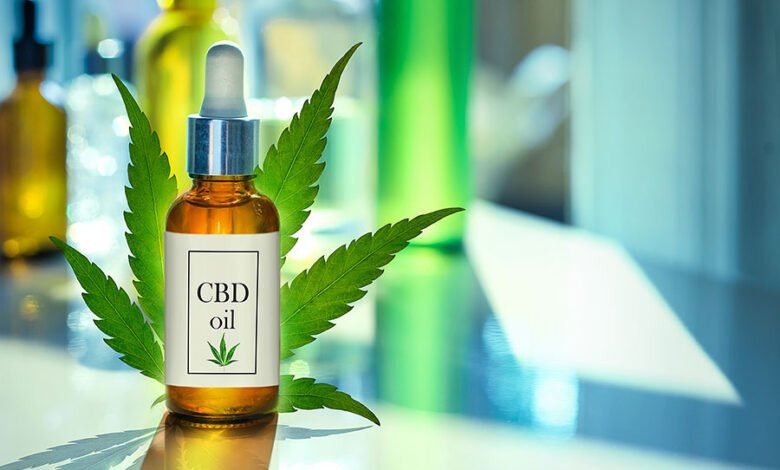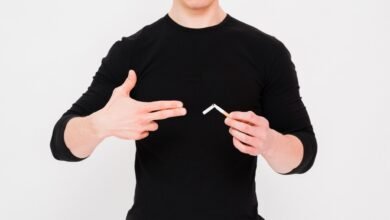6 Things You Should Know Before Buying CBD Oil

Shopping for CBD oil might be intimidating, especially if you’re new to hemp and cannabis. Do you require CBD capsules or CBD oil? What is the most effective product? How many milligrams are you looking for? Is THC present in this CBD oil?
The good news is that there are a lot of decent goods on the market from trustworthy companies that want to assist people find natural solutions to their medical problems. On the other hand, you must be a conscientious customer and be aware that there are some dodgy sellers out there wanting to make a quick buck from the green boom.
So, what are your options? I’ve compiled a list of six important things to ask when shopping for CBD products. Let’s take a look at how to shop for CBD and how to ensure you’re obtaining a genuine CBD product.
Related: 10 Nonpsychoactive CBD Oils to Try in Winter Holidays
1. Where can I find the Certificate of Analysis?
A Certificate of Analysis is a document that demonstrates where, when, and how a product was scientifically analyzed to assure safety and quality control. Any respectable CBD firm will be pleased to show you its certificate of analysis (COA), which proves that the product you’re looking to buy was evaluated by an independent, third-party (and unbiased) lab.
The report includes information such as milligrams of CBD and THC, lead and toxin concentrations, and testing facility specifics. “Independent third-party tests hold manufacturers and brands accountable for creating and selling what they advertise,” says Premium Jane creator Jeff Yauck. “The inverse would be in-house testing, which might misrepresent results/reports or purposely exclude out results.”
2. Where Was It Grown?
There are numerous reasons to choose homegrown, American-made products, particularly when it comes to hemp. A lot of low-cost hemp originates from China, which does not have the best agricultural standards (unfortunately, toxins, lead and pollution get into the plants).
Because hemp is a bioaccumulator, it takes everything from the soil in which it is grown, both beneficial and negative. Guess what’s in the tincture if hemp that has absorbed lead and contaminants is distilled into a small bottle of oil? There’s nothing you’d want to put in your body.
This isn’t to argue that all foreign-produced hemp is terrible, but until there are laws in place to ensure you’re getting a safe product, it’s best to stick with hemp grown in the United States.
3. How Many Milligrams Does a Specific CBD Oil Contain?
Dosages can be difficult to calculate, even for veteran CBD users. While 5 milligrams per day may be effective for some patients, clinical trials have indicated efficacy at 800 or even 1,000 milligrams. When it comes to cannabis, the rule of thumb from doctors and professionals is always the same: start low and go slow.
When it comes to shopping, keep a few things in mind. How many milligrams are in the bottle if you take 10 milligrams per day, whether it’s oil, capsules, or a vape cartridge? Consider the number of days you’ll receive out of the purchase and factor that into the price.
4. Isolate, Full-Spectrum Or Broad-Spectrum?
Is your product derived from CBD isolate? This indicates that the CBD ingredient, known as a phytocannabinoid, was removed and that your tincture contains no other parts of the cannabis plant. Some people prefer this because there is no likelihood of obtaining THC or other phytocannabinoids from the product.
Furthermore, because they are flavorless, isolates are frequently used in food goods. However, CBD isolate has a U-shaped response rate, which means that after a certain milligram threshold, CBD isolate becomes less effective. This topic is still being researched.
Despite the more herbaceous flavor, full-spectrum and broad-spectrum CBD have advantages. According to experts, the “entourage effect” of other phytocannabinoids (including THC) may produce a more potent synergistic effect. This indicates that the plant’s ingredients work better together and may produce greater outcomes for the patient than if the CBD was extracted.
It all comes down to personal preference and what works best for your body, but it’s critical to be an informed consumer while making these choices.
5. Is There Any THC In The Product?
Some individuals benefit more from CBD when combined with THC, while others have a bad reaction to THC or simply choose to avoid it. A doctor may prescribe a CBD:THC tincture with a 20:1 CBD:THC ratio, as CBD may minimize any of THC’s head-high, euphoric effects while providing a more effective therapy (read: no high, better results).
However, if you want to avoid THC, it’s preferable to ask if the product contains any THC. Most products must adhere to the “less than 0.3 percent” criterion, so double-check the COA and ensure that the product is precisely what you expect it to be.
6. Should I Use A Tincture, Oil, Vaporizer, Gummy, Or Pill?
What is the most effective method of treatment for your condition? This is determined by your body, preferences, and medical needs. Someone who has difficulty swallowing pills, for example, may prefer a gummy, but if you require faster delivery, a vaporizer or sublingual tincture may be the option for you.
Consider how the product enters your body. A pill, candy, or other type of consumable will be broken down in your digestive tract, providing for a gradual release over time. A product that is absorbed into capillaries (such as tinctures and oils beneath the tongue and vaporizers into the lungs) has considerably faster results.
CBD oils are typically in the sweet spot. Because they are retained sublingually and then swallowed, they provide rapid transport to the capillaries followed by delayed release of the remaining CBD that is eaten and digested.








2 Comments